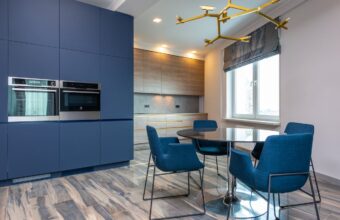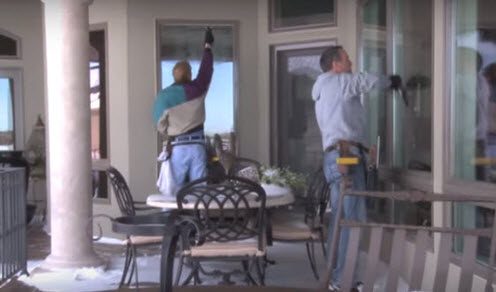Whether tinted glass is better than regular glass depends on specific needs, preferences, and the intended application.
Here are some considerations to help determine which option may be better suited for a particular situation…
Advantages of Tinted Glass
- UV Protection – Tinted glass can offer UV protection by blocking a significant portion of harmful ultraviolet (UV) rays from the sun. This can help protect furnishings, flooring, and occupants from UV-related damage.
- Heat Reduction – Tinted glass can help reduce heat gain by blocking or reflecting infrared radiation and visible light from the sun. This can result in cooler indoor temperatures, increased comfort, and reduced reliance on air conditioning.
- Glare Reduction – Tinted glass can reduce glare from sunlight and reflections, making it easier to see and work indoors without being blinded by bright light.
- Privacy Enhancement – Tinted glass can provide increased privacy by making it more difficult for outsiders to see into a building or vehicle. This can enhance security and confidentiality for occupants.
- Aesthetics – Tinted glass can enhance the appearance of a building or vehicle by adding a sleek, modern look and reducing the glare and harshness of sunlight.
Advantages of Regular Glass
- Visibility – Regular glass offers clear visibility both from the inside and outside, allowing for unobstructed views of the surrounding environment.
- Versatility – Regular glass can be used in a wide range of applications and settings, from residential and commercial buildings to vehicles and furniture.
- Cost – Regular glass may be more affordable than tinted glass, especially for large-scale projects or applications where tinting is not necessary.
- Ease of Maintenance – Regular glass is generally easy to clean and maintain, requiring simple cleaning methods and common household cleaners.
- Regulatory Compliance – In some jurisdictions, there may be regulations or restrictions regarding the use of tinted glass, particularly for vehicles or commercial buildings. Regular glass may be preferred to ensure compliance with local laws.
The choice between tinted glass and regular glass depends on factors such as the desired level of UV protection, heat reduction, privacy, aesthetics, and regulatory considerations. It’s essential to carefully consider these factors and weigh the advantages and disadvantages of each option to determine which is best suited for a specific application.






